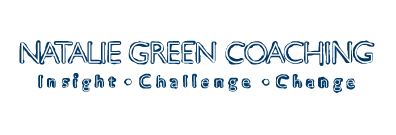
Frequently asked questions.
What inspired you to become a life coach?
Being coached in 2019.
After a lifetime of being a teacher, I was looking for a career change and expert coaching not only lead me to this new career but taught me things about myself along the way. It taught me how to understand and navigate further challenges that I didn't even know I would need help with.
And that's why coaching is so useful; you get that result but the process will serve you for life.
What is your coaching philosophy?
My coaching philosophy Is firmly rooted in the knowledge that the individual is resourceful. I know you do have the answers to your questions. However, success relies on your desire to hear those questions and your willingness to answer them honestly.
what is your approach to coaching?
My approach to coaching is positive and empathetic.
Humour is a great leveler and it has always surprised me when feedback reflects a slight playfulness in my coaching. Humour offers relief during difficult times. It is important to remember that coaching is not therapy, it is a very human, intuitive process that may include a little lightheartedness.
I use an outcomes-based module which means there is a clear and defined course, but my creative and flexible nature allows space for necessary diversions.
How do you tailor your coaching to each individual client?
The core of the coaching programme stays the same regardless of the individual. There needs to be a process, and format. The time taken at different stages of the process will vary but a clear format will demand accountability which is essential in a coaching partnership. Not least it ensures credibility.
Individuality occurs at each step; what is discovered, what is learnt. The outcome of that step will educate the approach to the next one. We can take as much time as required at each stage and sometimes unexpected issues arise.
It is important to be flexible and creative but there is forward momentum. A client on a short package will move speedily, a client on the longest package will have time to consider more deeply at each stage.
The length of the coaching programme is set and agreed upon before the start. And at the beginning of our process, when we have agreed to a goal, we will apply the greatest time where it is needed; but the pathway along the six steps remains the same.
what are the biggest challenges you help your clients overcome?
The biggest challenges are the: ‘but’ ‘can I’ and ‘how can I’. Often it's our perception of ourselves that is the challenge. I think self-fulfilling prophecies and habits are the hardest to overcome. These normally come to light during the discussion around ‘what is stopping you’.
With careful coaching, we can bring to light those saboteurs and the theories we have about ourselves. With changes in perspective, these are overcome.
The greatest challenge in life is discovering who we are. The second-greatest challenge is being happy with what we find.’ -Sidney Poitier
What qualifications do you have in coaching?
I hold a level 5 certificate with the Institute of Leaders and Management this is an Ofqual and Ofsted -regulated body associated with the City and Guilds. It is important that clients know coaching is an unregulated . Coming from an educational background I looked for a course that was vigorously monitored and assessed externally. I belong to the Association for Coaching where I am engaged in continual professional development.
